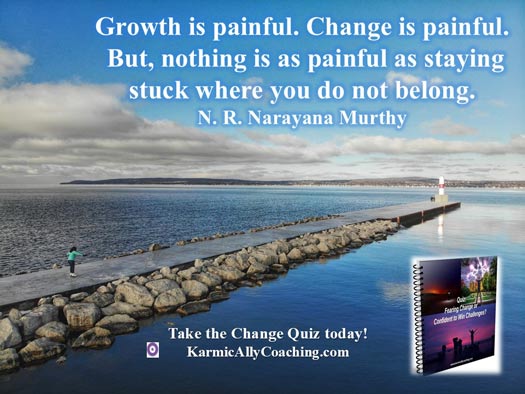This post has already been read 1037 times!

If you’re reading this, then one thing is for certain. It isn’t out of curiosity but a deeper reason. You want the answer to what’s most probably your 2 am in the morning question. ‘Why is my career not going the way I want it to, maybe it’s me?’
That’s a question a number of high achievers have when they hit a roadblock in their career.
These are the A-plus students who got great grades and were supposed to achieve a lot in life. The success path continued at college, and you got an awesome job that gave you financial freedom.
You’re probably doing pretty well in your career right now but for some reason, you’re unable to reach your peak and achieve that much desired position despite all the hard work you put in.
To the outside world it looks like you’ve arrived, and, in a way, you have but not at your desired destination.
Inside you know you deserve more and can do better but your career trajectory feels like it’s stalled a little or even plateaued.
If the issue bothers you too much, you might go looking for answers on Quora, try connecting with someone who you feel might have the answer on LinkedIn and after connecting ask to pick their brain (and then get cold shouldered if the brain picking is something that professionals pay them good money for).
You might do a Google search on the topic which could lead you to a page with details of booking a Discovery or Strategy Call with a Coach and you book the session expecting a silver bullet to solve your painful problem.
The point of these sessions is not to play Agony Aunt or provide free advice or coaching but to assess the person’s problem, see if they are a good fit for the coach’s services and if you are ready to do what it takes to change your situation.
I’ve got an easier first step you might want to consider and then go looking deeper for a solution that gets your career back on track.
Somewhere you might be the problem and your mindset, habits and actions are sabotaging your career.
The good news is, you’re also the solution.
Maybe sabotage is a harsh word to use so let me rephrase it.
Take a good and honest look at yourself. See if you’re being held back by one or more of these five factors that commonly stop people from reaching their career peak.
These are also signs that you’re sabotaging your career and need to take proactive action.
Fear of failure
I elaborate more on this limiting belief in my post Take the sting out of Fear of Failure it’s only a Belief sharing the story of Willis Carrier. It’s how he turned failure into success with a shift of mindset.
Fear of failure stops you from taking risks and seizing opportunities. What we often forget is that we have free will and can choose how we deal with failure.
You can allow it to engulf you and never take a chance or you can use it as a steppingstone to success.
That means reframing what failure means to you personally. It doesn’t have to be an all-out disaster. Simply the shift to thinking that you haven’t found what works yet. It can be paralyzing, but only if you let it.
My favorite example is of Thomas Alva Edison, who famously failed to invent the working light bulb more than a thousand times before he hit on the right formula.
The converse of failure is persistence. And persistence will out-perform innate talent every time.

Lacking Focus, Endurance and Easily Distracted
In any activity or endeavor, it is important to build endurance. Endurance can be defined as the ability to focus on the task at hand and bring it successfully to conclusion.
Some call it fortitude, others call it strength or stamina.
No matter what you call it though, endurance is the ability to persevere and get the job done, no matter what.
Usually, when we speak of endurance, we’re referring to physical activity. Yet, endurance is as important in the business world as it is anywhere else.
In business circles, endurance usually takes the form of focus. Instead of physical prowess, it becomes the ability to concentrate successfully on a given task.
Focus is a critical skill set for any professional. Especially in today’s fast-paced world where success often means keeping several equally important balls in the air at one time.
So, how do you focus on multitasking, a situation where, by its very definition, several things are happening at once?
The key to successful focus is attention.
When several things are happening simultaneously, you need to concentrate on only one thing at a time. This doesn’t mean you bring one task to full completion before you start on another.
Rather, you spend just enough time on a given task to take it to the next stage of development and then you turn your attention to another task. In some sense, it’s a little like being a mother duck with ducklings.
You give your attention to the duckling that is farthest out of line, nudging it forward to where it should be, before you turn your attention to the next little duck.
Each duckling gets a measure of your focus, but none gets your full attention all the time. In this way, each task gets moved along in turn, and all are successfully completed in time.
Staying focused on big picture goals is the key to achieving success. It’s easy to be distracted by side issues and the demands of your email or phone. Staying productive requires attention and focus.
Make it easier to produce high-quality, consistent work by keeping focused on the current priorities and sticking to your plan.
If need be, take steps to power up your focus muscles.
Self-doubt
Sometimes we get a bad boss who undermines our efforts or a project that you worked hard on fails and your confidence takes a hit. Depending upon the situation and the fall out, your otherwise confident self now starts to second guess decisions and actions.
This internal feeling shows up in the quality of your work and impacts your career progress when your boss begins to think you’ve reached your optimal level of competency (remember the Peter Principle?) whereas that is not the case.
Self-doubt can undermine all your efforts if you let it.
The way I see it, you are responsible for writing your own success story so why indulge in self-sabotage?
Instead, when the self-doubt gremlin surfaces, remember your past achievements. Look back, see all the steppingstones that brought you to where you are now. You have the skills, and you have the know-how to get where you want to go.
Procrastination
It’s normal to feel overwhelmed at work sometimes. A solid time management plan can help to focus on the tasks that really need to get done within a time frame.
But sometimes, there are actions we need to take which feel uncomfortable or difficult. We start to delay them until we’re in full procrastination mode.
You may not want to talk to a difficult client or have that performance feedback session with your subordinate even though you know how important it is.
You don’t want to experience the discomfort and that’s normal, you’re human but the longer you put off uncomfortable tasks or discussions, the worse it is going to get. Leaders can feel discomfort too, but they do what is required of them.
It comes down to a failure to take the right action at the right time.
There are times when procrastination is good and I outline them in this post, but for the better part of the time, this creates an impression that you’re not responsible or diligent and that can impact your career.
Instead, why not commit to the action in your diary, plan for it and do it?
I recently read a great article by Justin Bariso where he shared the 5 Minute Rule used by emotionally intelligent people to overcome procrastination. It works provided you take action.
Procrastination is a habit and it can be replaced with a better habit – the habit of considered action.
There are many studies that look into the psychology of procrastination. It isn’t just a time management issue although procrastination gets bunched into it.
If you need some quick help, then my mini-course How to Stop Procrastinating Right Now is a good starting point.
Complacency
Who would have thought being complacent can adversely affect your career path?
This behavior kicks in when you know you’re good at your job and have potential. Instead of working to demonstrate you’re ready for the next level, you decide to rest on your laurels expecting to be given the next promotion or a leadership role.
Here’s a truth bomb for you. Different positions up the corporate ladder require different skill sets. If you’re not demonstrating you have them or the keenness to acquire them, then that will pull the brakes on your career progression.
If you’re lucky to have a good boss who takes an interest in your career while also ensuring the work gets done, then you might be guided to undertake specific training to develop new skills.
When that isn’t the case, then you need to figure out what new skills are required to match your ambition.
One key skill you need to acquire is Executive Presence. Your higher ups need to ‘see’ you’re ready for the next level. Competition gets tougher as you climb up the corporate ladder and you need to stand up above the others for all the right reasons.
If you really want to reach the top of your field, then you need to balance your actual work with working on yourself. In this TedTalk, Anthony Cheam shares what it REALLY takes to become the best version of yourself.
So stop being complacent and expecting things to happen but make them happen!
The bottom line is, you’re responsible for your career success and it starts by being proactive and professional development.
Don’t wait for your employer to do it for you – do it yourself!






 I adhere to the Certified Coaches Alliance Code of Ethics and Standards. A copy is available on request.
I adhere to the Certified Coaches Alliance Code of Ethics and Standards. A copy is available on request.
 Let's Talk through the Connect Form:
Let's Talk through the Connect Form: